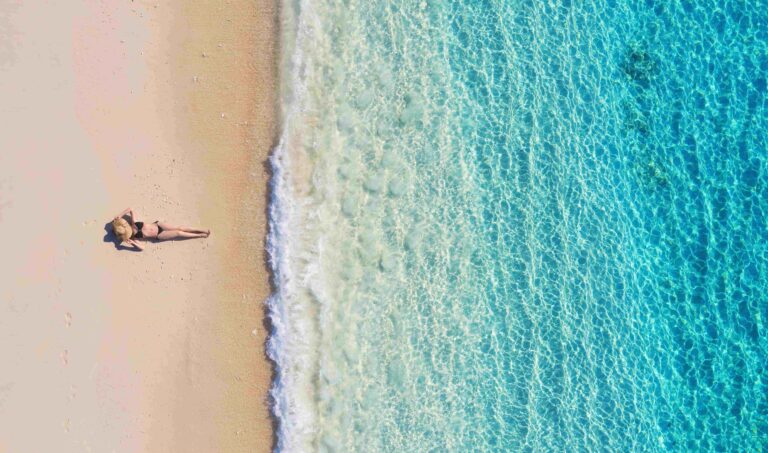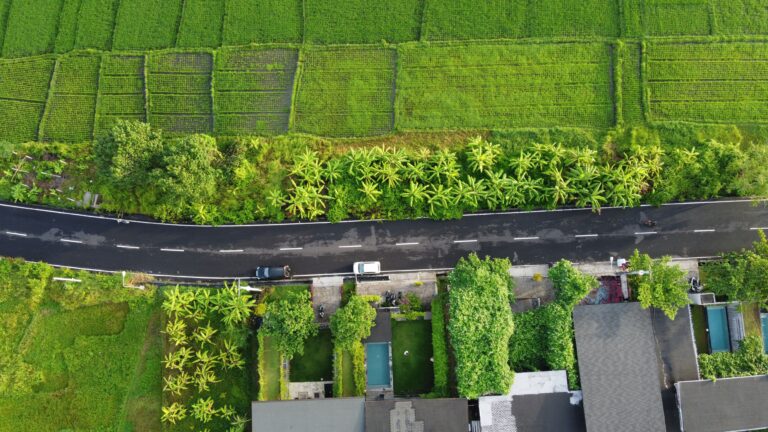Coffee lovers rejoice! Bali is home to some of the finest coffee in the world and if you want to see where it comes from, there’s a Bali coffee plantation waiting to welcome you.
In fact, there are quite a few plantations here in Bali that would love to have you come and taste their coffee and our guide will introduce you to the most ethical and sustainable plantations on the island.
Let’s Talk About The Famous Luwak Coffee
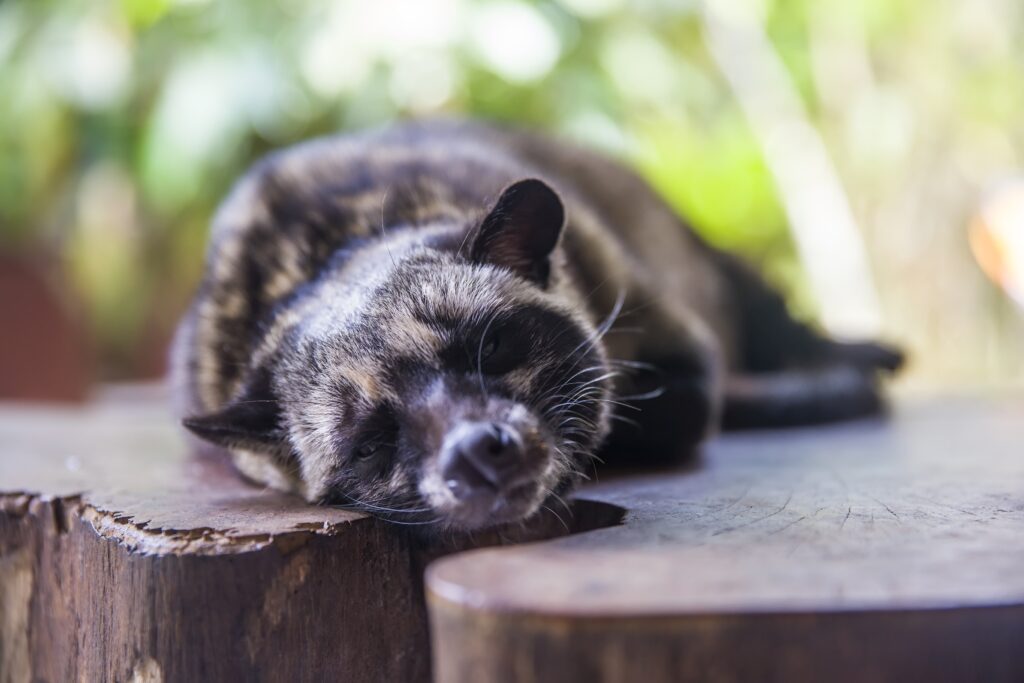
We’re not sure if it’s the famous luwak coffee or the infamous luwak coffee nowadays. Luwak coffee or civet coffee or kopi luwak or coffee luwak is a fairly contentious issue and it’s one that we wanted to address before we look at the different coffee plantations.
Luwak coffee is an Indonesian phenomenon and the taste of civet coffee powder is considered to be the best coffee in the world.
It’s made when an Asian palm civet cat consumes the coffee fruit that falls to the jungle floor. However, the civet animal can’t digest the bean and it’s passed back out of the cat and onto the jungle floor.
The digestive process, however, changes the taste of the coffee and produces a less acidic better rounded flavour.
This is all good and in theory, there’s nothing wrong with civet coffee. Unfortunately, in order to produce civet coffee in enough quantity to meet the demand for the luwak coffee taste, some farmers have started to catch civets and put them in cages and then force-feed them coffee beans to boost production levels.
The resulting Bali coffee luwak made in this manner is a source of animal cruelty and most people consider it to be unethical. That’s why we’re not sure if it’s famous luwak coffee or infamous luwak coffee.
The local coffee shops and coffee plantations that we recommend below do not use farmed civets to produce their civet coffee but it’s up to you to decide whether, even in these circumstances, or not a very expensive cup of coffee luwak is acceptable to your ethical code.
Why Visit A Coffee Plantation In Bali?
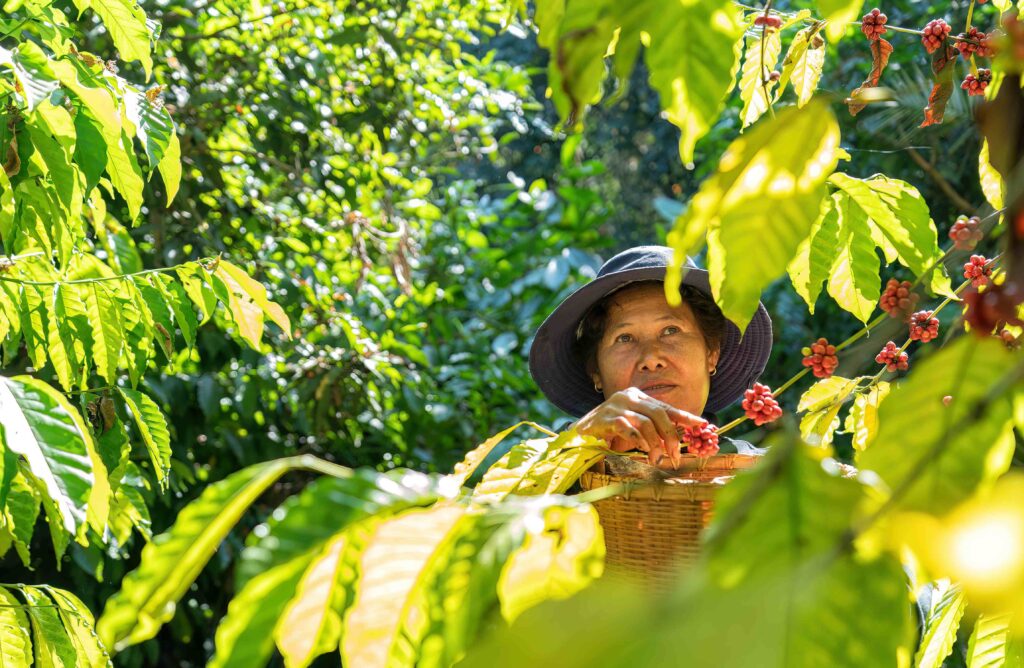
Indonesian coffee is relatively unknown in the West but the nation is among the best coffee-producing countries and you will find that some of the smoothest coffee in the world comes from the farms here in Indonesia and Bali.
Balinese coffee isn’t a single variety and it’s wonderful to get out and visit a Bali coffee plantation to learn how the different varieties are raised and to sample the coffee beans and the coffee they produce.
Coffee lovers will, of course, get a lot out of a visit to a coffee plantation but even those who don’t drink coffee will find the overall process interesting.
When Are Bali Coffee Plantations Not Coffee Plantations At All?

We have to warn you that not all coffee plantations are created equal and you may find the occasional Bali coffee plantation that is more of a gift shop and much less of a coffee producer than it claims to be in its promo material.
We would recommend that you ask for a tour of the gardens and see a coffee plant or two before agreeing to purchase expensive coffee that they didn’t even grow.
Our list below contains only established coffee plantations, not tourist traps.
Is It A Good Idea To Buy Roasted Coffee Beans From A Bali Coffee Plantation Shop?
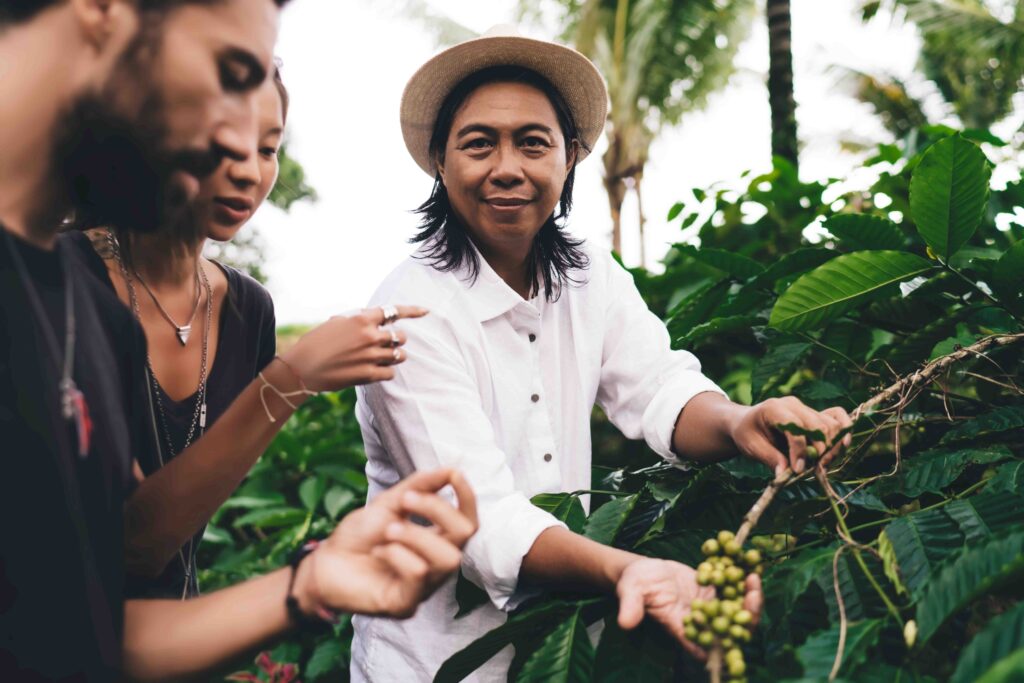
Maybe. It depends on how much you like the local coffee and how much of a premium you’re willing to pay for it.
Somewhat ironically, you can often purchase coffee beans from the plantations for less money in the cafes in the beach towns than at the plantations themselves.
9 Amazing Coffee Plantations To Visit In Bali
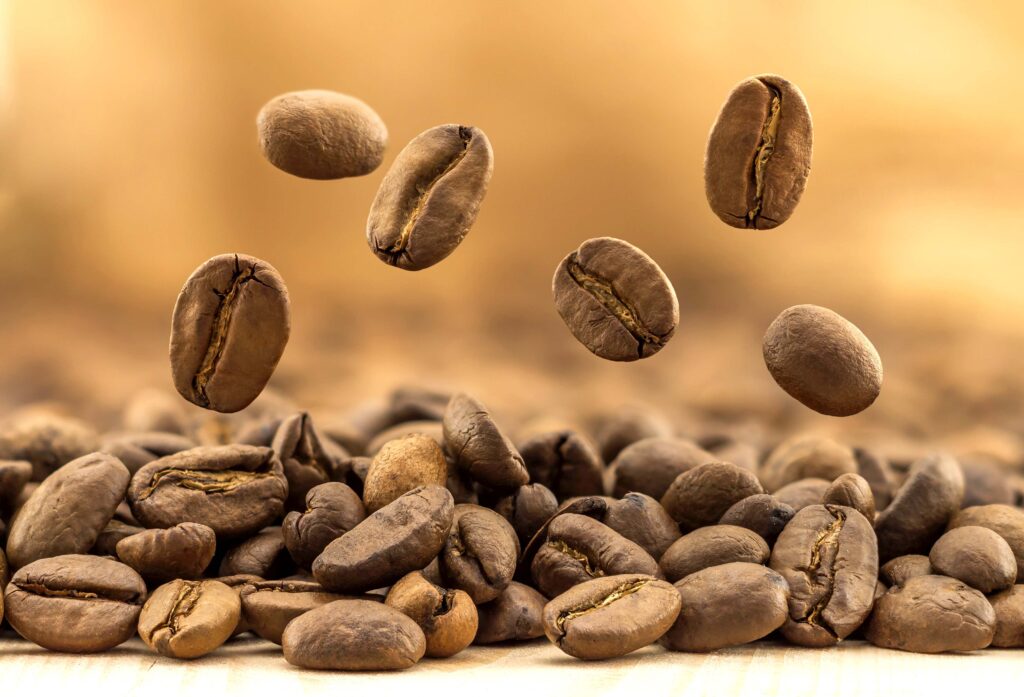
If you love roasted coffee beans, there are plenty of Bali coffee plantations for you to visit and see where your coffee beans come from before they end up in the local coffee shops.
Bali Pulina Agro-Tourism Coffee Plantation
This is a lovely coffee plantation that is just outside of Ubud and near the Tegalalang Rice Terrace, so you might want to combine your Bali coffee agrotourism with some rice agrotourism.
They have a nice coffee garden keeper who will be happy to explain the different coffees they grow (from Arabic Gayo coffee to Ijen Arabic coffee, there are quite a few varieties here including the local Flores Bajawa Arabic coffee).
There is an entrance fee but you will be offered free samples from the various coffee plantations in exchange for your 10,000 IDR.
Where Is It? Jl. Raya Pujung Kaja No.Br , Sebatu, Kec. Tegallalang, Kabupaten Gianyar, Bali 80561, Indonesia
Online: Bali Pulina
The distinctive smell of very good quality permeates the air at this tourist attraction and it’s a great place to enjoy some famous Bali coffee varieties taken from the many coffee plantations in the area.
They also have a chocolate plantation and brew rice wine onsite, so you can have a bit of a party at Teab Sari if you want to, just make sure to learn about cultivating coffee from the local Balinese farmers before you start imbibing!
Where Is It? Jl. Tangga Yuda Jl. Tanggayuda No.148, Bongkasa, Kec. Abiansemal, Kabupaten Badung, Bali 80352, Indonesia
Online: Teba Sari
Buana Amertha Sari Agro-Tourism Coffee Plantation
The island of Bali has many pleasant places to stop and enjoy the coffee-making process and then try the fruits of the plantation’s labour.
We found that Buana Amertha was a cut above and we’d be happy to ditch our usual coffee brand for the coffee that comes from their coffee gardens any time.
The view here is a lovely view of the local countryside too.
Where Is It? J88M+2GF, Manukaya, Tampaksiring, Gianyar Regency, Bali 80552, Indonesia
Online: N/A
Wanagiri Coffee Plantation
This is a family-run business that guarantees that it will operate 100% ethically and with a focus on sustainability.
They’ve been growing coffee here for generations and the coffee is, perhaps, the finest on the island.
It is a bit more expensive than elsewhere (and even the tour and sampling is 100,000 IDR) but there’s no doubt that the taste of the coffee is worth the price.
Where Is It? Unnamed Road, Wanagiri, Sukasada, Buleleng Regency, Bali 81161, Indonesia
Online: N/A
OKA Agriculture Coffee Plantation
Just 20 kilometres north of Ubud, you will find this excellent plantation and they do one of the best deals when compared to the usual coffee plantations.
It’s free to get in and free to enjoy 14 different samples (including Bali coffee, their own hot chocolate blend and some local teas!)
However, if you want to try the coffee luwak that will be 60,000 IDR a glass and they will throw in a pancake too!
Where Is It? J89P+C8H, Manukaya, Tampaksiring, Gianyar Regency, Bali 80661, Indonesia
Online: Instagram
MAS Plantations Bali
This is the closest plantation to the beach towns and it’s just outside of Denpasar in the Gianyar Regency.
It’s free to get in and the basic samples are all free too! You will need to pay if you want to try their ethically produced civet coffee.
This Bali coffee plantation also offers some excellent snacks at its onsite cafe.
Where Is It? Jl. Rapuan, MAS, Ubud, Gianyar Regency, Bali 80571, Indonesia
Online: Link Tree
Munduk Moding Coffee Plantation
If you want a 5-star Bali coffee plantation experience, you can find it at Munduk Moding (and oddly, it’s part of a 5-star resort complex too, more on this in a minute).
You will learn everything about coffee from when it begins as a seed to the moment it is used as a fine powder to deliver a great cup of coffee.
This is a completely ethical, sustainable and organic plantation and helps to support local farmers making local coffee.
Where Is It? Jl. Asah Gobleg, Gobleg, Kec. Banjar, Kabupaten Buleleng, Bali 81152, Indonesia
Online: Munduk Coffee
Segara Windhu Coffee Plantation
A tour of this plantation is a pre-requisite before you’re guided into the store to try some of the coffee and maybe buy some to take home for your friends and relatives.
Where Is It? banjar temen, Jl. Raya Kintamani, Manukaya, Kec. Tampaksiring, Kabupaten Gianyar, Bali 80552, Indonesia
Online: Instagram
Belantih Coffee Farm (Bali Kintamani Coffee Plantation)
This is a great organic farm that focuses its effort on Kintamani Arabic coffee and it’s one of the finest Arabicas to be found on the island.
One lovely thing about this Bali coffee plantation is that there are free visits (including some free samples) available every Saturday and Sunday, which means you can enjoy their delicious coffee and see the coffee plant that it came from for free!
Note: As we go to press this plantation is temporarily closed to visitors. However, it is likely to resume soon and you can contact the farm before you travel to check if they are ready to recieve guests again.
Where Is It? Jalan Raya Belantih No.binyan, Belantih, Kec. Kintamani, Kabupaten Bangli, Bali 80652, Indonesia
Online: Belantih
Sort of. There’s no resort specializing just in coffee and we suspect that even coffee lovers might find that a little tedious.
However, Munduk Moding Plantation Nature Resort has its own coffee plantation and it’s a lovely hotel with some truly gorgeous amenities including an infinity pool with beautiful views of the countryside.
What Will You Learn At The Coffee Plantations On The Island?
You will learn all the steps of coffee making at a Bali coffee plantation including:
Planting – all plants start with a seed and then they are germinated in a nursery and then transplanted into the soil as seedlings. This gives the plant a great chance of coming to maturity.
Cultivating Coffee – once they’re in the ground, the plants need rain, humidity and sunshine and then it takes about three to four years for the plant to start making beans.
Harvesting – this process varies from plant species to species and while arabica coffee tends to require harvesting when the fruit is fully ripe, robusta may often be harvested before the berries are ready to fall off the plant.
Processing – the fruit isn’t useful in its own right, the beans must be extracted to get that coffee taste.
Roasting and grinding – then it’s time to turn the coffee beans into the precursors of a cup of coffee.
Brewing – finally, the powder is transformed via a variety of methods into a tasty cup of coffee.
FAQs
What Is The Best Coffee Plantation In Bali?
There are many great coffee plantations in Bali but if we had to pick just one? We’d probably go with the Munduk Plantation thanks to its 5-star hotel resort on the side.
What Is The Famous Coffee In Bali?
Civet coffee or coffee luwak is the most famous coffee from any Bali coffee plantation. It’s important to remember that though the coffee luwak taste is highly sought after, coffee luwak is not always produced in an ethical fashion.
Is Luwak Coffee In Bali Real?
Yes, coffee luwak or civet coffee is quite real. Many a Bali coffee plantation will produce civet coffee and the resulting Bali coffee luwak is considered to be one of the finest coffees in the world. However, please remember that not all civet coffee powder is ethically made. (See above for more details).
Do They Grow Coffee In Bali?
Yes! There are a lot of coffee plantations in Bali and they grow some of the world’s finest coffee, this includes the controversial coffee luwak or civet coffee.
How To Book A Tour Of A Coffee Plantation?
We always recommend that you book a trip or a tour in Bali through the Bali Res Centre . That’s a locally owned and operated travel service that can ensure your trip to a Bali coffee plantation goes without a hitch.
Final Thoughts On Visiting A Coffee Plantation In Bali
Indonesia produces a lot of the world’s coffee and there are some awesome places in Bali to try amazing coffee.
However, visiting the coffee plantations adds another dimension to the coffee experience and you can enjoy learning from the growers all about the origins of your favourite blend.
Of course, if you prefer to drink your coffee rather than see your coffee plants first hand, we’ve got some amazing coffee at FINNS, the world’s best beach club, why not come down and see for yourself?







